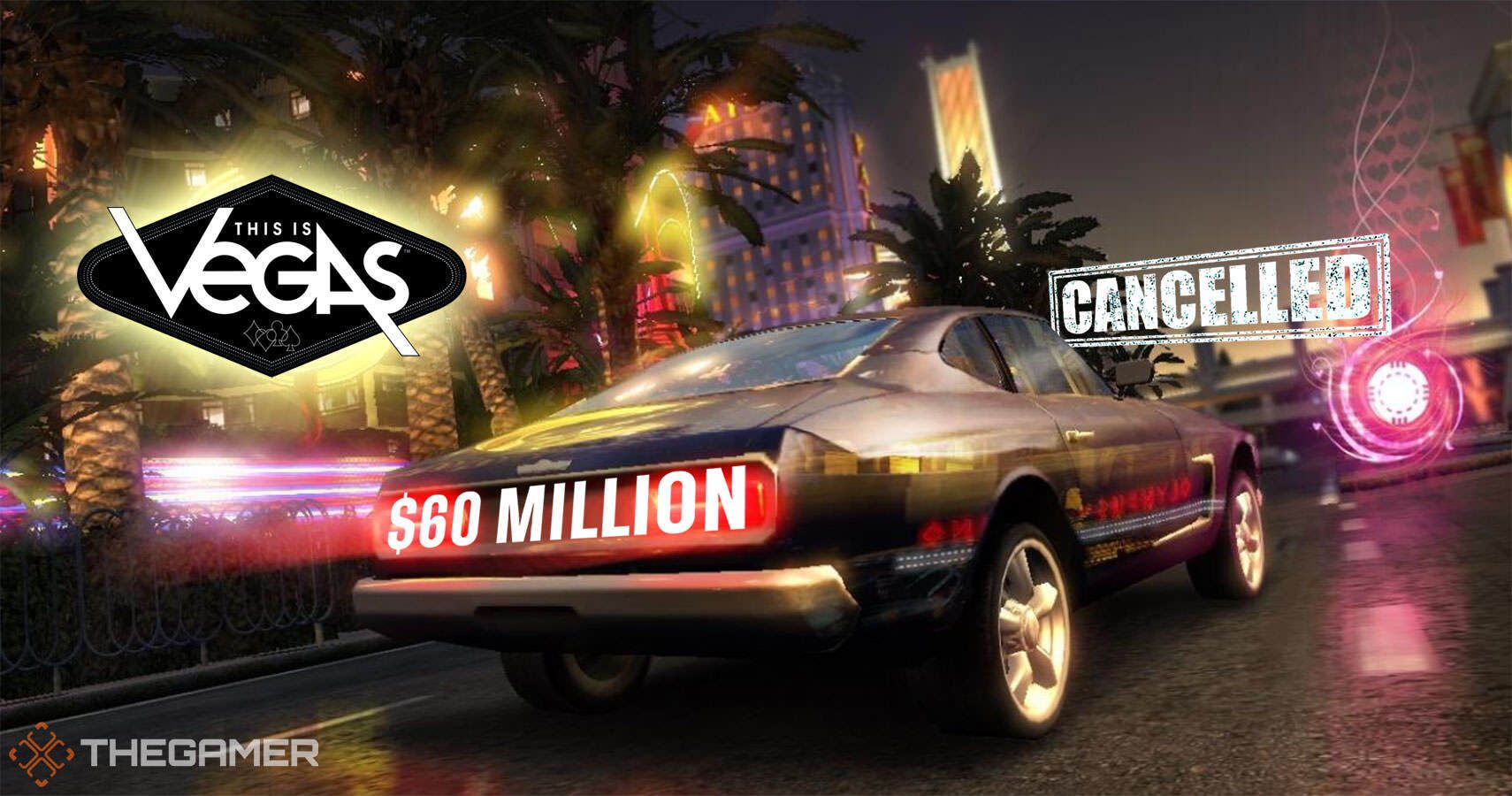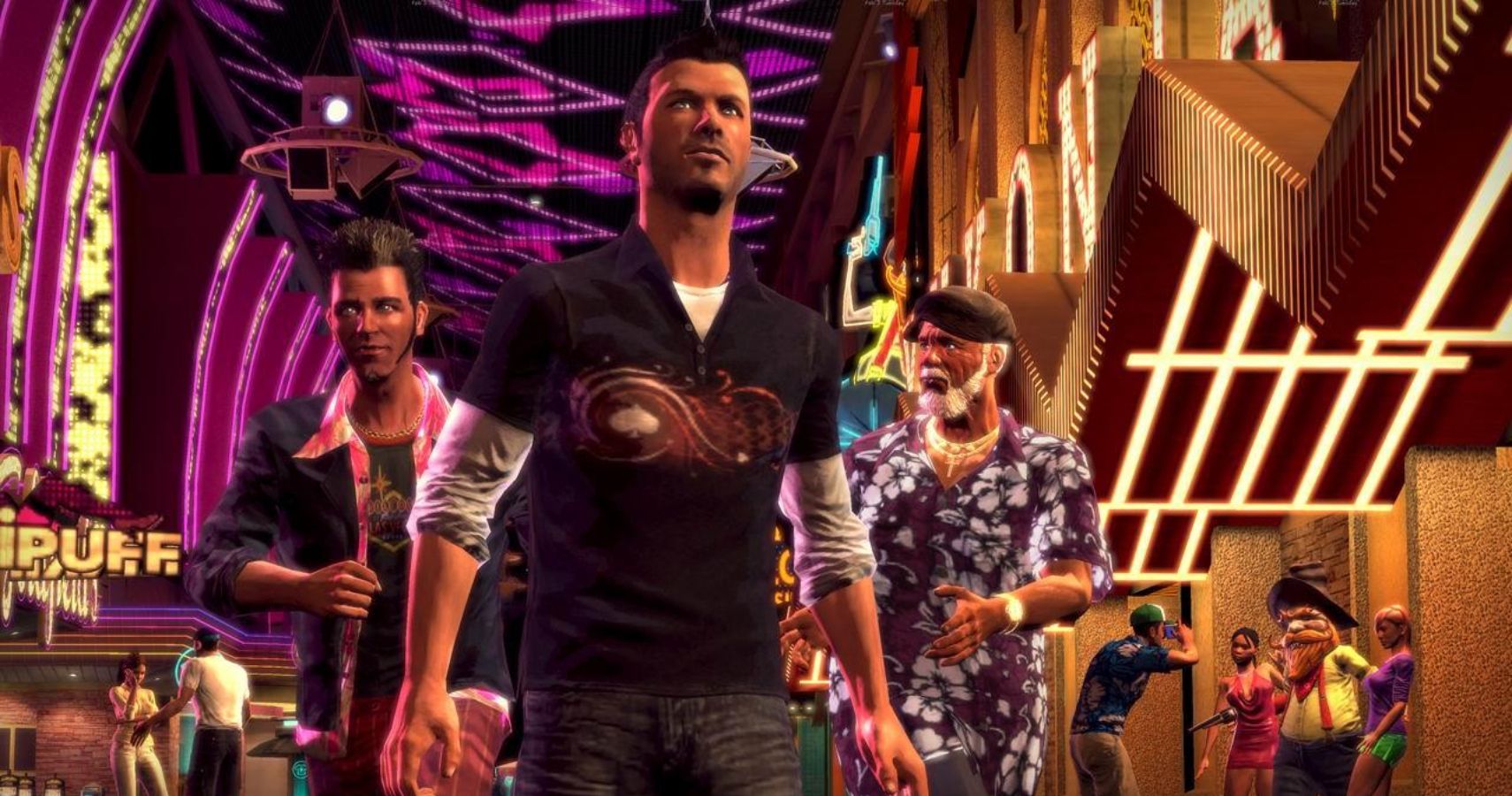This article is based on research from Liam Robertson of DidYouKnowGaming, which is linked throughout.
Once upon a time, there was a little game sitting in the pipelines by the name of This Is Vegas, in development at Surreal Software and due to be published by Warner Bros. Well, with total development costs bordering on a whopping $60 million, it was anything but "little," really.
This Is Vegas was in production for almost five years, and was expected to rise up as a prominent challenger to Grand Theft Auto. Instead, Warner Bros. ended up giving it the boot. What on earth happened? What made this massive and ambitious project fizzle out into nothing? Here's the fascinating story of one of the most expensive video games ever to have been cancelled.
Slow Beginnings
The problems with This Is Vegas began at the beginning, really. It seems that the game struggled to get off the ground even from the very first pitch back in 2005, which was reportedly made by David Zucker — the then-CEO of developer and publisher Midway Games.
Zucker's broad idea of an open-world crime game set in Las Vegas needed to be fleshed out more, which the folks at Surreal Software — a game dev studio acquired by Midway — attempted to do. Surreal's repeated attempts were systematically rejected by company higher-ups for a long time, until the idea of an extravagant, feature-rich sandbox thriller set against the opulent backdrop of Las Vegas was finally settled upon.
The premise was that the game would be decked out with casinos, nightclubs, and hotels, modelled after real-life Vegas landmarks, and would draw inspo from GTA for its gameplay and Saints Row for its tongue-in-cheek tone. It was also decided that there would be four major components to This Is Vegas: racing, fighting, partying, and gambling, with the latter two forming the bulk of the action.
But even though the conceptual foundation of This Is Vegas eventually got laid out, there was never quite a satisfactory level of consensus among the devs around how the game would portray its dark humor and overall tone. For example, some felt the game's gun-based violence was too much of a jarring juxtaposition to the more lighthearted vibe that prevailed elsewhere. Others thought it fitted perfectly within the game's extravagant landscape. Naturally, this set things off on the wrong foot.
High Stakes
The other kiss of death placed upon this already ambitious project was the expensive and bold decision to use Unreal Engine 3 as its support structure. Put simply, UE3 wasn't actually equipped to be the game's support structure in the first place.
At that point, the engine was untested, incomplete, and simply not able to support large. super dense open-world games like this one. So the development process was reportedly rife with debilitating tech difficulties that continuously set the project back. Pair this with an ever-growing list of lofty demands by Midway and you get an expensive project with far too much ambition given the constraints set in place by its engine and deadlines.
February 2008 saw the first announcement of This Is Vegas for the Xbox 360, PS3, and PC, which was slated for a release later that year. That of course couldn't happen, so the release was delayed to 2009. That didn't end up happening either.
At A Loss
Despite the turmoil which bubbled beneath the surface pretty much since day one, This Is Vegas' developers still managed to uphold a decent level of optimism for a pretty long time. The game really did have some great potential in many ways, especially in its promise of sharp, satirical writing (largely thanks to Cracked editor Jay Pinkerton, who later hopped onto the Portal 2 and Half-Life: Alyx teams), considerable character depth, and no shortage of things to see and do.
Unfortunately, though, team morale inevitably started to dwindle as the pressure mounted and finances drained. Midway had apparently not reported any profits since the year 2000, and had actually lost a staggering $258.9 million between 2005 and 2008.
To make matters even more dramatic, the game's primary stakeholder — billionaire Sumner Redstone — subsequently lost a huge fraction of his net worth, which the media at the time pinned on Midway's financial woes. At the end of 2008, Redstone — who had been largely responsible for helping Midway stay afloat — ducked out and sold all of his shares in Midway. And so, the company continued on its descent into bankruptcy.
No More Gambles
Enter Warner Bros. In 2009, amid all of the aforementioned chaos, the publishing giant swooped in and bought Midway — including Surreal — for a then-whopping $49 million. At first, it seemed as though Warner Bros. would be the saving grace capable of preventing the game's untimely demise. Unfortunately, things were already too far gone at that point.
Significant progress had certainly been made: the script's first draft was complete, all the voice acting had been recorded, and 90 minutes of cutscenes were coming along nicely. However, after several more months of persistent technical difficulties, accumulating expenses, and staff layoffs, all remaining hope was systematically snubbed out. This lingering uncertainty dragged on until 2010, while the public was left out of the loop in terms of what to expect after two years of radio silence since This Is Vegas' last announcement.
Finally, in August 2010, Warner Bros. pulled the plug completely and cancelled This is Vegas. After four and a half years, efforts from between 200 and 300 staff, and an estimated $60 million spent on the project by Midway and Warner Bros. combined, the larger-than-life crime thriller was snuffed out of existence once and for all.
It's staggering to think about the sheer levels of effort, sacrifice, and resources that were poured into this doomed project from the very beginning, particularly by the many developers backing it. The very least we can do now is salute them for their commitment to one of the grandest video game projects to never exist.


